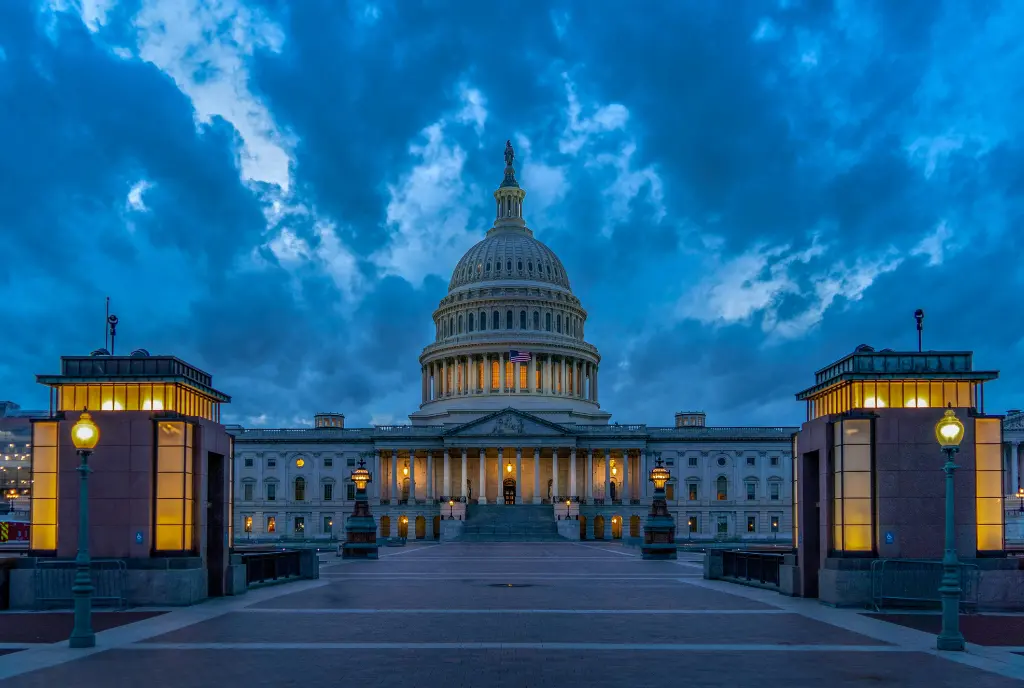
Note: This article has been updated on November 14, 2024 to reflect comments from Akilah Watkins of Independent Sector.
Members of the US House of Representatives failed Tuesday to reach a two-thirds vote necessary to advance a bill, HR 9495, that would grant the US treasury secretary—appointed by the president—broad power to strip nonprofits of their tax-exempt status if deemed by the secretary to be a “terrorist-supporting organization.”
“Congress is already moving to hand a resurgent Trump administration a powerful cudgel that it could wield against ideological opponents in civil society.”
This hazy definition, free-speech advocates fear, could be exploited, especially by the incoming Trump administration, to “grant the executive branch extraordinary power to investigate, harass, and effectively dismantle any nonprofit organization…based on a unilateral accusation of wrongdoing,” according to a coalition of more than 120 civil society groups, coordinated by the American Civil Liberties Union, this September.
The bill, first introduced amid protests on university campuses over the war in Gaza (and unsupported claims by some partisans that the protests and the nonprofits supporting them had ties to Hamas) has taken on new urgency since the 2024 presidential election.
Days after the election of Donald Trump to the presidency, the Intercept reported that the bill was scheduled for a fast-track vote:
Now, just days after he secured a second term in the White House, Congress is already moving to hand a resurgent Trump administration a powerful cudgel that it could wield against ideological opponents in civil society.
“This is the sort of thing that a Trump administration could weaponize against civil society broadly.”
The ACLU echoed those fears in a conversation with NPQ.
“The reality of this bill is that it gives pretty unilateral authority to the treasury secretary to strip a nonprofit of its tax exempt status without any sort of due process—you really don’t have any sort of opportunity to defend yourself before a neutral decision-maker,” said Kia Hamadanchy, senior policy counsel for the ACLU.
Sign up for our free newsletters
Subscribe to NPQ’s newsletters to have our top stories delivered directly to your inbox.
By signing up, you agree to our privacy policy and terms of use, and to receive messages from NPQ and our partners.
“And I think I think the fear is that this is the sort of thing that a Trump administration could weaponize against civil society broadly—not just organizations that might be involved in protests regarding the conflict in Gaza, but civil society writ large,” said Hamadanchy. “He’s talked a lot on the campaign trail about going after protesters, people he disagrees with, people he thought might be his enemies.”
A Close Call
“The activism DID work and persuaded members.”
The bill received a party-line vote by Republicans and 52 “yes” votes by House Democrats, with 144 Democratic “no” votes—enough to defeat the measure which, for technical reasons, required a two-thirds majority to pass rather than the usual majority vote.
But there is nothing to stop House Republicans from bringing the bill back again for a simple majority vote. And with Republicans set to take the Senate next year, it’s unclear whether Democrats will be able to stop the measure next time.
Posting on the social media app Bluesky, New York Congresswoman Alexandria Ocasio-Cortez said the defeat was a triumph of activism against the bill:
“Was there today for the H.R. 9495 vote (bill that would have allowed labeling nonprofits as terrorist supporting organizations). Voted no, of course — but I do want to report that the activism DID work and persuaded members. I thought it’d be a lonely NO vote, which we take often. It wasn’t.”
The ACLU cheered the victory as well, with Hamadanchy saying in a statement:
“The freedom to dissent without fear of government retribution is a vital part of any well-functioning democracy, and now is not the time to grant the executive branch new powers to investigate and functionally shut down and silence its critics. Tonight enough members of the House voted to block giving the executive branch new broad and easily abused powers. This is only the first such battle we expect to see in the coming years, and we will continue to remain vigilant in working to ensure that the authority of the executive branch is appropriately limited.”
Groups representing nonprofits and civil society also praised lawmakers for defeating the measure and committed to defending the sector.
“Stopping the financing of terrorism and preventing any bad actor from misusing the charitable sector are essential public policy priorities. Providing material support to a terrorist organization is already illegal, and the IRS has used this authority previously. Despite its laudatory goals, HR 9495 would duplicate this process in a way that fails to protect the critical due process rights of organizations in the charitable sector,” said Independent Sector CEO Akilah Watkins. “If current rules and regulations need improvement to protect our sector from exploitation for illegal activities, Independent Sector is committed to collaborating with lawmakers on appropriate solutions. But we will staunchly resist any effort—however well-intentioned—that could allow for the targeting of individual nonprofits and weakening of America’s civic space.”
NPQ will continue to monitor the progress of this legislation in the coming weeks and months and as the Trump administration takes power.